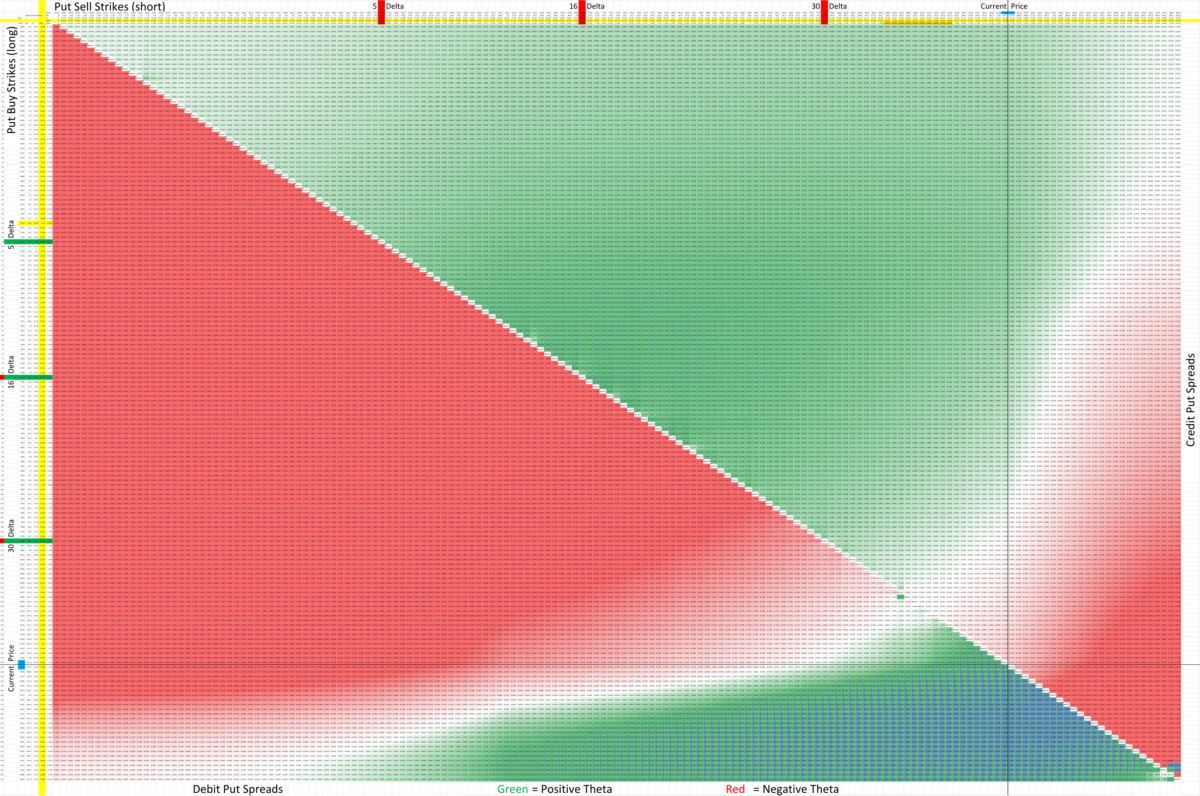Home>Finance>What To Put For Annual Income For Credit Card Student


Finance
What To Put For Annual Income For Credit Card Student
Modified: February 21, 2024
Learn how to determine your annual income for credit card applications as a student. Explore financial options and tips for managing finances effectively.
(Many of the links in this article redirect to a specific reviewed product. Your purchase of these products through affiliate links helps to generate commission for LiveWell, at no extra cost. Learn more)
Table of Contents
Introduction
When it comes to credit card applications, financial institutions often require applicants to provide their annual income information. This requirement helps them assess the applicant’s ability to manage credit and make repayments. For students applying for a credit card, determining what to put for annual income can be challenging, as they may not have a stable job or significant income streams.
In this article, we will explore the various factors and considerations involved in reporting annual income for a student credit card. We will discuss the importance of accurately providing this information, alternative options for students with limited income, and sources students can consider when calculating their annual income. By understanding these factors, students can make informed decisions when filling out their credit card applications.
It is crucial for students to approach the annual income requirement seriously, as misreporting or providing inaccurate information can lead to complications down the line. Whether you are a part-time student working part-time or relying on financial assistance from your parents, there are ways to determine and report your annual income effectively. Let’s dive in and explore some strategies to help you navigate this process.
Understanding Annual Income Requirement
When filling out a credit card application, one of the key pieces of information required is your annual income. This information helps lenders assess your ability to manage credit responsibly and make timely repayments. While it may seem straightforward, it’s essential to have a clear understanding of what constitutes annual income and how it impacts your credit card application as a student.
Annual income refers to the total amount of money you earn in a year before taxes and deductions. It includes various sources of income, such as wages from part-time jobs, scholarships, grants, allowances, and any financial assistance you receive. For students, the annual income requirement is particularly important, as many may not have a steady job or traditional income streams.
Financial institutions have different minimum income requirements for credit card applications. It’s crucial to review these requirements before applying to ensure you meet the qualifications. Generally, lenders want to see that you have a stable income and are financially capable of making the required minimum monthly payments.
As a student, your annual income may be lower compared to individuals with full-time employment. However, this does not mean you are automatically disqualified from obtaining a credit card. It’s important to recognize that financial institutions understand the financial circumstances of students and offer credit card options specifically designed for them. These student credit cards often have lower credit limits and tailored features, making them more accessible to individuals with limited income.
Properly understanding the annual income requirement allows you to provide the appropriate and accurate information when filling out your credit card application. It ensures that you meet the lender’s criteria and increases your chances of obtaining a credit card that suits your needs as a student.
Determining Annual Income for Student Credit Card
As a student, determining your annual income for a credit card application requires a bit of thoughtful consideration. While your income may not be as substantial as someone in full-time employment, there are still several sources you can consider when calculating your annual income.
1. Part-Time Job Income: If you have a part-time job, include the earnings you receive from it. Calculate your income based on the number of hours you work and your hourly wage. Be sure to factor in any fluctuations in your work schedule or seasonal employment.
2. Scholarships and Grants: Include any scholarship or grant funds you receive. These financial aids are considered as income and can contribute to your annual income calculation. Make sure to provide accurate information about the amount you receive and any recurring stipends or awards.
3. Financial Assistance from Parents or Guardians: If your parents or guardians provide you with financial assistance, such as a monthly allowance or funds for your living expenses, you can include this as a part of your annual income. Keep in mind that you should only include the amount that you can reliably expect to receive throughout the year.
4. On-campus Employment: Many universities offer on-campus employment opportunities for students. If you are working on-campus, include the income you earn from such employment in your calculation. Remember to factor in any restrictions on the number of hours you can work during the academic term.
5. Freelance or Gig Work: If you engage in freelance work or have any side gigs, you can include the income generated from these activities. This can include tutoring, graphic design, writing, or other skills that you offer on a freelance basis. Keep track of your earnings and ensure accuracy when reporting it.
When calculating your annual income, it is crucial to be honest and accurate. Misrepresenting your income can lead to complications and potential consequences. Remember that lenders understand the financial circumstances of students and will not expect exorbitant amounts of income.
Additionally, if your income varies from month to month or semester to semester, you can provide an estimate of your average monthly income. This allows lenders to assess your ability to manage credit based on an average income rather than a fixed monthly amount.
By considering these various sources of income and accurately calculating your annual income, you can confidently provide the necessary information on your credit card application and increase your chances of approval as a student.
Sources of Income for Students
Students have access to a range of potential income sources that can contribute to their overall financial stability. When applying for a credit card, it’s important to consider these various sources to accurately determine your annual income. Here are some common sources of income for students:
1. Part-Time Jobs: Part-time employment is a popular option for students to earn income. Whether it’s working at a local retail store, restaurant, or as a freelancer, part-time jobs provide a steady income stream that can be included in your annual income calculation.
2. Scholarships and Grants: Scholarships and grants are valuable sources of income for students. These awards are typically based on academic performance, special talents, or financial need. Be sure to include any scholarship or grant funds as part of your annual income, as they can significantly contribute to your financial stability.
3. Financial Assistance from Parents or Guardians: Many students rely on financial support from their parents or guardians. This can take the form of a monthly allowance or assistance with tuition and living expenses. If you receive such financial aid, it should be included as part of your annual income calculation.
4. Work-Study Programs: Many colleges and universities offer work-study programs that allow students to work part-time on campus. These programs provide valuable work experience and a source of income. Income earned through work-study programs can be included as part of your annual income on your credit card application.
5. Internships and Co-op Programs: Some students gain valuable work experience through internships or co-op programs. These programs often offer paid positions, providing students with income. Including the income earned from internships or co-op programs in your annual income calculation is essential when applying for a credit card.
6. Entrepreneurial Ventures: Some students may have entrepreneurial skills and engage in small business ventures. Whether it’s selling handmade crafts online or offering a service like tutoring or web design, the income generated from these entrepreneurial activities can contribute to your annual income.
Remember, when including these sources of income in your annual income calculation, it’s crucial to provide accurate and honest information. Lenders understand that students may not have high incomes like full-time employees, so reporting your income sources accurately is more important than the actual amount.
By considering these various sources of income and including them in your annual income calculation, you can provide a comprehensive view of your financial situation when applying for a credit card as a student.
Considerations for Reporting Annual Income
When reporting your annual income for a credit card application as a student, there are several key considerations to keep in mind. These factors will help ensure that you accurately represent your financial situation and improve your chances of approval. Here are some important considerations:
1. Be Honest and Accurate: It is essential to provide truthful and accurate information when reporting your annual income. Misrepresenting your income can lead to serious consequences and potential legal issues. Lenders understand that students may have limited incomes, so it’s better to report your actual income rather than inflate or misstate it.
2. Include All Income Sources: Make sure to consider all sources of income when reporting your annual income. This includes part-time job earnings, scholarships and grants, financial assistance from parents or guardians, on-campus employment, and any other income streams you may have. Including all sources of income will provide a comprehensive view of your financial situation.
3. Track Fluctuating Income: As a student, your income may vary from month to month or semester to semester. If this is the case, provide an estimate of your average monthly income rather than a fixed monthly amount. Showing consistency in your income, even if it fluctuates, demonstrates your ability to manage credit responsibly.
4. Document Supporting Documentation: In some cases, lenders may request documentation to support your reported income. Make sure to keep records of your income sources, such as pay stubs, scholarship letters, bank statements, or any other relevant proof of income. Having these documents readily available when applying for a credit card can streamline the approval process.
5. Consider Future Income Prospects: If you anticipate an increase in your income in the near future, such as starting a higher-paying job or receiving a significant scholarship, it’s worth mentioning this in your application. Lenders may take these future prospects into account when assessing your creditworthiness.
6. Consult with a Financial Advisor: If you are uncertain about how to accurately report your annual income or have concerns about your financial situation, consider consulting with a financial advisor. They can provide guidance and help you determine the best approach for reporting your income accurately.
Remember, the annual income you report on your credit card application is one of the factors lenders consider when assessing your creditworthiness. It’s crucial to provide a clear and accurate picture of your financial position, even if your income as a student may be limited. By following these considerations, you can accurately report your annual income and increase your chances of obtaining a credit card as a student.
Providing Accurate Annual Income Information
When applying for a credit card as a student, it is crucial to provide accurate annual income information. Lenders rely on this information to assess your creditworthiness and determine your eligibility for a credit card. To ensure you accurately report your annual income, consider the following:
1. Review Your Income Sources: Take the time to review and carefully identify all of your income sources. This includes part-time job earnings, scholarships, grants, financial assistance from parents or guardians, on-campus employment, and any other reliable sources of income. By considering all of your income sources, you can ensure that you report the most accurate annual income figure.
2. Calculate Your Average Income: If your income fluctuates, calculate your average monthly or yearly income. This helps lenders get a more accurate representation of your financial situation. By providing an average income, you demonstrate consistency and stability, even if your income varies from month to month.
3. Keep Documentation: Keep records of your income sources, such as pay stubs, scholarship letters, bank statements, and any other supporting documentation. This will not only help you accurately report your income but also provide evidence if the lender requests verification of your reported income. Having these documents readily available will streamline the application process.
4. Be Transparent about Your Financial Assistance: If you receive financial assistance from your parents or guardians, be transparent about it. Specify the amount and frequency of the assistance you receive. Lenders understand that many students rely on financial support, and this information provides a complete picture of your financial resources.
5. Consider Future Income Prospects: If you anticipate an increase in your income in the near future, whether it be through a new job opportunity or an expected raise, mention this in your application. Lenders may take your future prospects into account when evaluating your creditworthiness.
6. Double-Check Your Application: Before submitting your credit card application, review all the information you have provided, including your annual income. Double-check for any errors or omissions to ensure accuracy. Providing false or misleading information can have negative consequences and may result in your application being denied.
Remember, accuracy and honesty are crucial when reporting your annual income for a credit card application. Lenders understand that students may have limited incomes, so it’s better to provide accurate information rather than embellishing your income. By providing precise and reliable annual income information, you increase your chances of obtaining a credit card that suits your needs as a student.
Alternative Options for Students with Limited Income
As a student with limited income, obtaining a credit card can still be possible. Financial institutions recognize the unique financial circumstances of students and offer alternative options to accommodate their needs. Here are some alternatives for students with limited income:
1. Secured Credit Cards: A secured credit card is a good option for students with limited income or no credit history. With a secured credit card, you provide a security deposit that acts as collateral for your credit limit. This reduces the risk for the lender and allows you to establish credit history while managing your expenses.
2. Joint Credit Cards: If you have a parent or guardian with a stable income and a good credit history, you can consider applying for a joint credit card. With a joint credit card, both you and the co-signer are responsible for the card’s management and repayment. This option can help you build credit while benefiting from the co-signer’s stronger financial position.
3. Student Credit Cards: Many financial institutions offer credit cards specifically designed for students. These cards often have lower credit limits and tailored features that suit the financial circumstances of students. They may also come with perks like cashback rewards on student-related expenses.
4. Authorized User: If someone you trust, such as a parent or guardian, has a credit card with a good payment history, you can ask them to add you as an authorized user. As an authorized user, you can make purchases using their credit card, and their positive payment history can help you build credit. However, ensure that the primary cardholder is responsible and makes payments on time to avoid any negative impact on your credit.
5. Credit Builder Loans: Another option is to consider credit builder loans. These loans are specifically designed to help individuals build credit. With a credit builder loan, the lender holds the borrowed amount in a savings account, and you repay the loan in monthly installments. As you make payments, your credit is gradually built, and at the end of the loan term, you receive the funds along with improved credit history.
When considering these alternative options, it’s important to carefully review their terms and conditions, including interest rates and fees. Additionally, responsible credit card usage and timely payments are essential to building a positive credit history.
Remember, having a credit card as a student can be a valuable tool for building credit and managing expenses. However, it’s crucial to use the card responsibly and ensure that you can make timely payments. By exploring alternative options and using credit wisely, you can establish a strong credit foundation for your financial future.
Conclusion
Applying for a credit card as a student can be a beneficial step in building credit and gaining financial independence. When it comes to reporting your annual income, it’s important to approach the process with honesty and accuracy. By understanding the requirements and considering alternative options, you can navigate the application process effectively.
Make sure to include all sources of income when calculating your annual income, such as part-time jobs, scholarships, grants, and financial assistance from parents or guardians. Keep documentation and records to support your reported income, as lenders may request verification.
< p>Consider alternative options if you have limited income, such as secured credit cards, joint credit cards, and student credit cards tailored to your needs. These options can help you establish credit and manage your finances responsibly.
Lastly, remember that reporting your annual income accurately is crucial. Misrepresenting your income can lead to complications and potentially harm your credit in the future. Lenders understand the financial circumstances of students, so it’s better to provide honest information rather than inflate your income.
Having a credit card as a student comes with responsibility. Make sure to use the card wisely, make timely payments, and keep your credit utilization low. By using credit responsibly, you can build a strong credit history that will benefit you in the future as you transition into the workforce and pursue your financial goals.
In conclusion, the annual income requirement for student credit card applications can be navigated successfully by considering all income sources, accurately reporting information, and exploring alternative options. By doing so, you can obtain a credit card that suits your needs as a student and begin building a positive credit history for your financial future.














